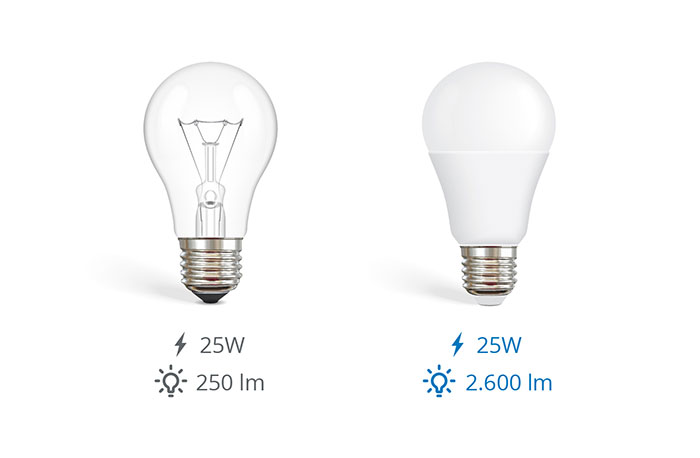
Don't Overpay for Watts: How Solar Energy Yield Affects your Savings
How Solar Energy Yield Works
This is because some panels perform differently across real-world conditions like the amount of daylight, cloud cover, temperature, and shade.
And those differences can make a big difference to your savings.
To understand how much power your system will actually create, it is helpful to understand a little bit about how energy is measured.
Understanding how Energy is Measured (kWh vs kWp)
The energy used by your home is measured in kilowatt hours (kWh). You might recognise this measurement as it is used by utilities to charge homeowners for electricity.
However, as we said, the number you see listed when you purchase your solar panels (and systems) is measured and priced by their “rated power” in watts (W). This power rating measurement represents the most amount of power your system could produce under a set of industry regulated “Standard Testing Conditions” (STC).
Imagine a panel in a lab that simulates a perfectly clear, windless high-noon sun facing straight down onto the panels, all in controlled, cool temperatures (25ᵒ C)—hardly the real-world conditions they’ll experience each day on your roof.
However, this STC rating does not represent the amount of energy your panel generates from your roof because your location, installation angle and the technology you chose will affect your panel’s power output and energy yield.
The Light Bulb Comparison

It would be like comparing two light bulbs by watts instead of brightness. As technology has evolved, we’ve learned that LED bulbs can be more than 10 times brighter than conventional incandescent bulbs even with the same 25 watts of rated power consumption. So, should a shopper pay the same for these two technologies just because they are both rated to 25 Watts? Or is one more valuable because of its greater light output per watt of power?
Like these light bulbs, the technology in two 400 W solar panels can produce vastly different real-world results. And in the case of solar panels, these results have an effect on your long-term return on investment.
If your panels can’t create the energy yield you need, you could be overpaying for your system.
As we learned, some panels will great a higher solar energy yield than other panels, but we haven’t discussed yet how their technology makes this possible. Let’s take a look at the SunPower Maxeon 5 AC modules to learn more. SunPower Maxeon 5 AC Module systems can deliver a higher solar energy yield than conventional solar panels1
Energy advantage varies based on local competitive benchmarks and product options. Analysis source: PVsyst simulation. Assumptions: Amsterdam residential roof at 30 deg tilt with portrait installation. Average system size is 6.0 kWP SunPower Maxeon ACM module: Max5 AC 415W (Enphase IQ7A-72-x-INT). Conventional modules: Mono PERC 310W (0,55% annual degradation rate) + leading string inverter.
through:
- Unique cell architecture, which makes Maxeon panels more receptive to blue light typical during cloud cover, and to red light that occurs early or late in the day.
- Leading cell efficiency2 Based on datasheet review of websites of top 20 manufacturers per IHS, as of June 2020. , which maximises the watts installed on your available roof by producing more power in the same area as conventional panels.
- Unmatched reliability by maintaining a 2-3x power advantage over conventional panels3 Jordan, D. et. al. “Robust PV Degradation Methodology and Application.” PVSC 2019 pre-print. , outperforming the competition in heat4 Based on temperature coefficients values from datasheet review. , humidity and even wild temperature swings over time.
So, are you getting the best solar energy yield from your home solar panels? Or are you overpaying for the watts on the label?